Understanding subtraction Normal Addition & Subtraction Worksheets for Ages 4-7
5 filtered results
-
From - To
Introduce your child to the foundational skill of subtraction with our specially designed Normal Addition & Subtraction Worksheets for Ages 4-7. These engaging and age-appropriate worksheets make learning subtraction fun and accessible for your young learner. With a variety of exercises that range from single-digit subtraction to simple word problems, our resources are crafted to build confidence and competence. Perfect for both classroom and at-home practice, these worksheets aim to enhance your child's numerical skills and understanding. Boost their mathematical journey with comprehensive practice that aligns with early learning standards, fostering a love for math from an early age.
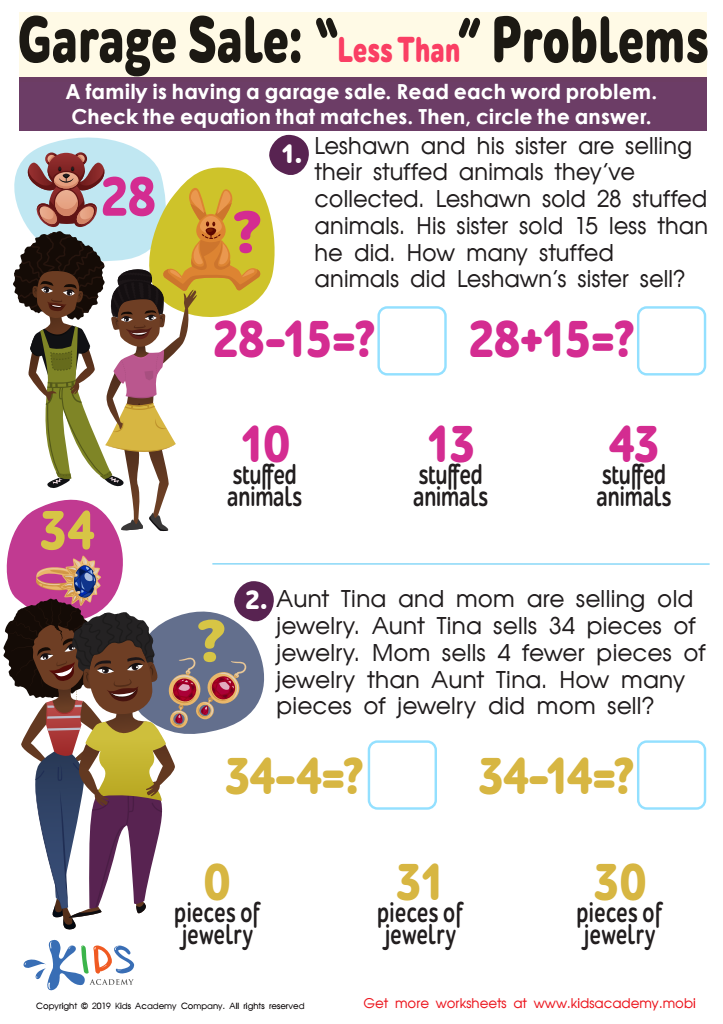

Garage Sale Less Than Worksheet
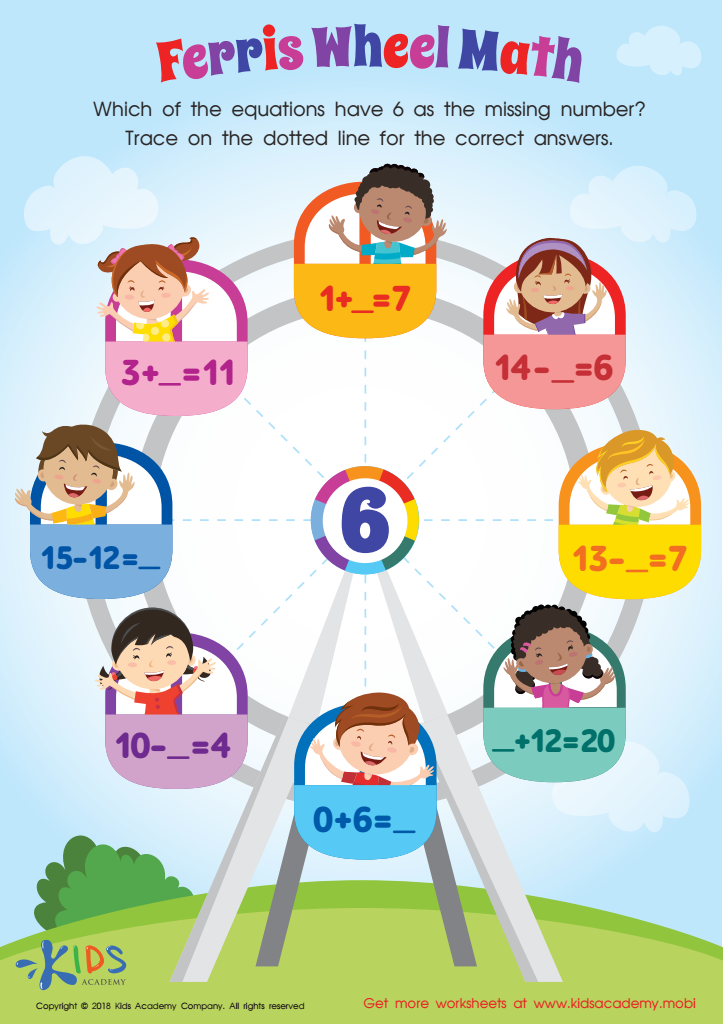

Missing Number: Ferris Wheel Math Worksheet
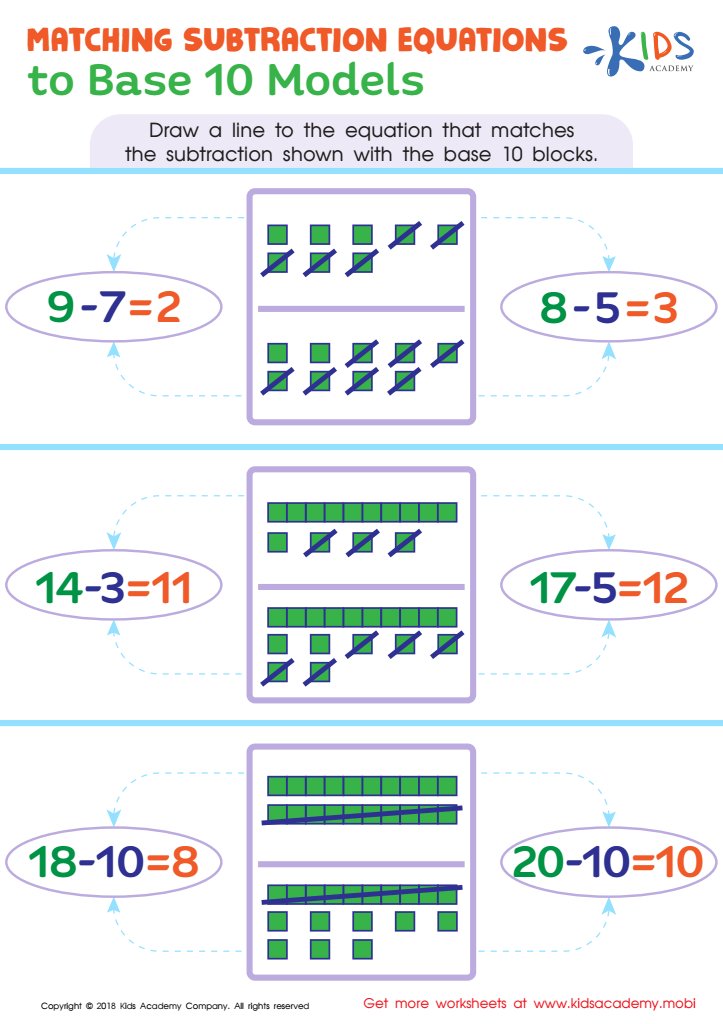

Matching Subtraction Equations To Base 10 Models Worksheet
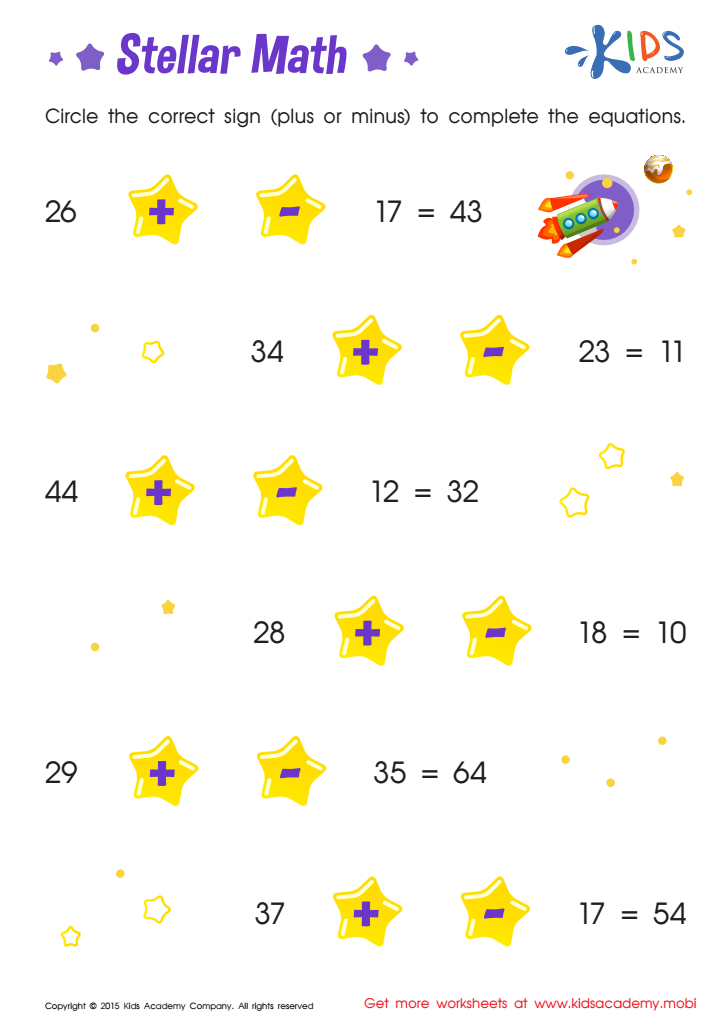

Stellar Math Substraction Worksheet
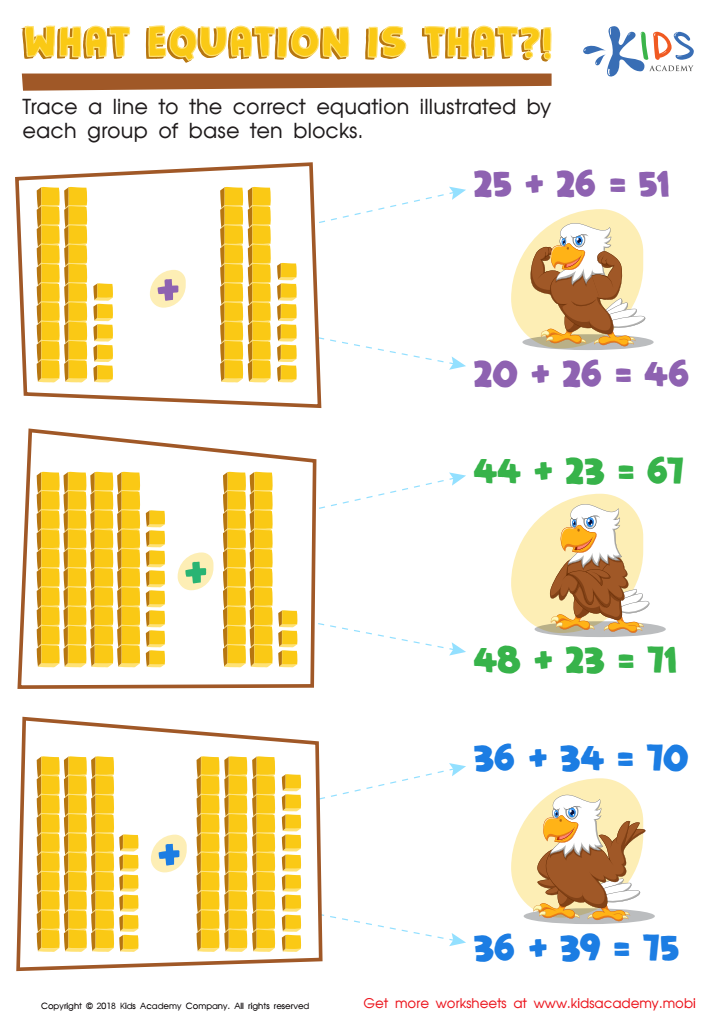

What Equation Is That? Worksheet
Understanding subtraction is crucial for young children's mathematical development and problem-solving skills. For ages 4-7, recognizing how subtraction and addition interrelate can profoundly influence their academic foundation and intuitive number sense.
At this formative stage, math is not merely about numbers; it’s about grasping fundamental concepts. Subtraction complements addition by allowing children to discern how parts make up a whole and how those parts can be separated and recombined. This mastery enables kids to handle everyday situations involving exchange, comparison, and resource management – essential life skills beyond the classroom.
Parents and teachers play critical roles in fostering a supportive learning environment. By emphasizing subtraction alongside addition, they help children build a robust numerical framework. Visual aids and practical examples can illustrate these concepts vividly, enhancing comprehension. For instance, using objects like toys or fruits to demonstrate "taking away" can make abstract ideas more concrete and accessible.
Moreover, early proficiency with these operations boosts confidence and enthusiasm for mathematics, establishing a strong foundation for more complex topics such as multiplication and division. In essence, an early understanding of subtraction and addition prepares children for lifelong learning, critical thinking, and daily decision-making. Investing in these foundational skills is an investment in their future academic success and practical life competencies.
 Assign to My Students
Assign to My Students





















